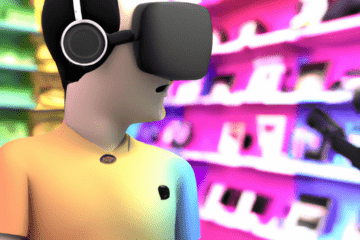The concept of the metaverse is not new, but it has gained momentum in recent years. The metaverse is a virtual universe that consists of various interconnected digital spaces that are created by users. The concept is still in its early stages, but it has the potential to revolutionize the way we interact with technology and each other. In this blog, we will explore the relationship between the metaverse and real estate.

What is the Metaverse?
The metaverse is a virtual world that is created by users. It is a collective space that is not owned by any single entity. The metaverse can be accessed through various devices, including computers, virtual reality headsets, and smartphones. Users can create their digital avatars, interact with other users, and engage in various activities such as gaming, shopping, and socializing.
Real Estate in the Metaverse
Real estate is an integral part of the metaverse. Just like in the physical world, the virtual world also requires space for various activities. In the metaverse, virtual real estate is created by users and is sold or leased to other users. Virtual real estate can be anything from a simple plot of land to a fully developed virtual city.
Virtual real estate can be used for various purposes. It can be used for gaming, shopping, socializing, or even for business purposes. For example, a user can create a virtual store and sell digital products. Virtual real estate can also be used for advertising purposes. Companies can create virtual billboards and display their advertisements in the metaverse.
Virtual real estate is also used for virtual events. In the metaverse, events can be organized without any physical limitations. Users from all over the world can participate in the event without leaving their homes. Virtual real estate can be used to create virtual stages, auditoriums, and other facilities for hosting events.
The Value of Virtual Real Estate
Virtual real estate has value just like physical real estate. The value of virtual real estate is determined by various factors such as location, size, and development. Just like in the physical world, virtual real estate in prime locations is more valuable than virtual real estate in less desirable locations.
Virtual real estate can also appreciate in value over time. As the metaverse becomes more popular and more users enter the virtual world, the demand for virtual real estate increases. This can lead to an increase in the value of virtual real estate.
Virtual real estate can also generate income for its owners. Virtual real estate can be leased to other users, and the owners can earn rental income. Virtual real estate can also be used for advertising purposes, and the owners can earn advertising revenue.
Challenges and Opportunities
The metaverse presents both challenges and opportunities for the real estate industry. The challenge is that the metaverse is a virtual world, and the rules and regulations of the physical world do not apply. There is no central authority that governs the metaverse, and the ownership of virtual real estate is not clearly defined.
However, the metaverse also presents opportunities for the real estate industry. The metaverse has the potential to create new revenue streams for the industry. Virtual real estate can be leased or sold to users, and the industry can earn commissions on these transactions.
The metaverse can also create new business opportunities for the industry. The industry can create virtual real estate development firms that specialize in creating virtual cities, virtual shopping malls, and other virtual facilities.
Conclusion
The metaverse has the potential to revolutionize the way we interact with technology and each other. Virtual real estate is an integral part of the metaverse, and it presents both challenges and opportunities for the real estate industry. Virtual real estate has value, and it can generate income for its owners. The metaverse presents new revenue streams and business opportunities for the real estate industry.


